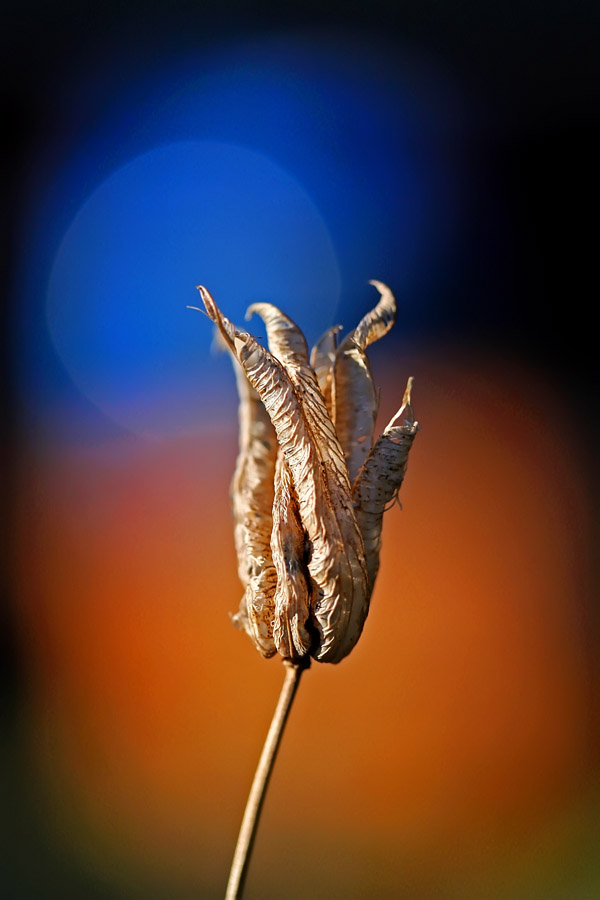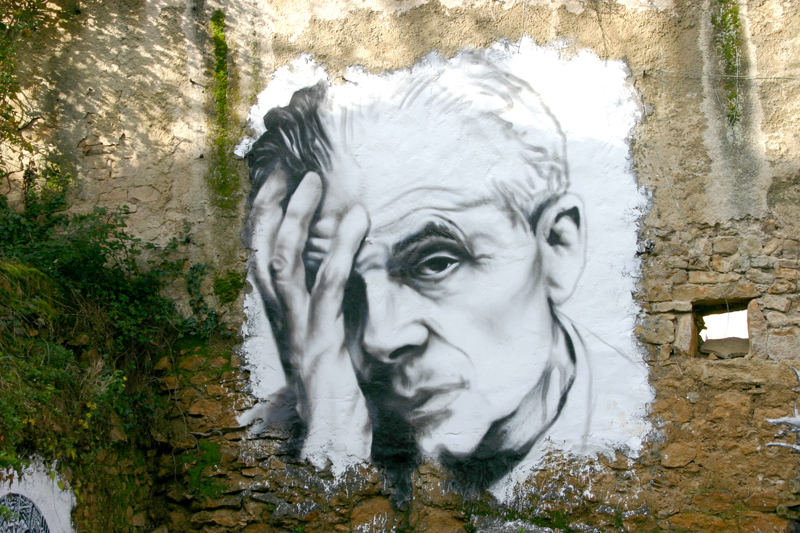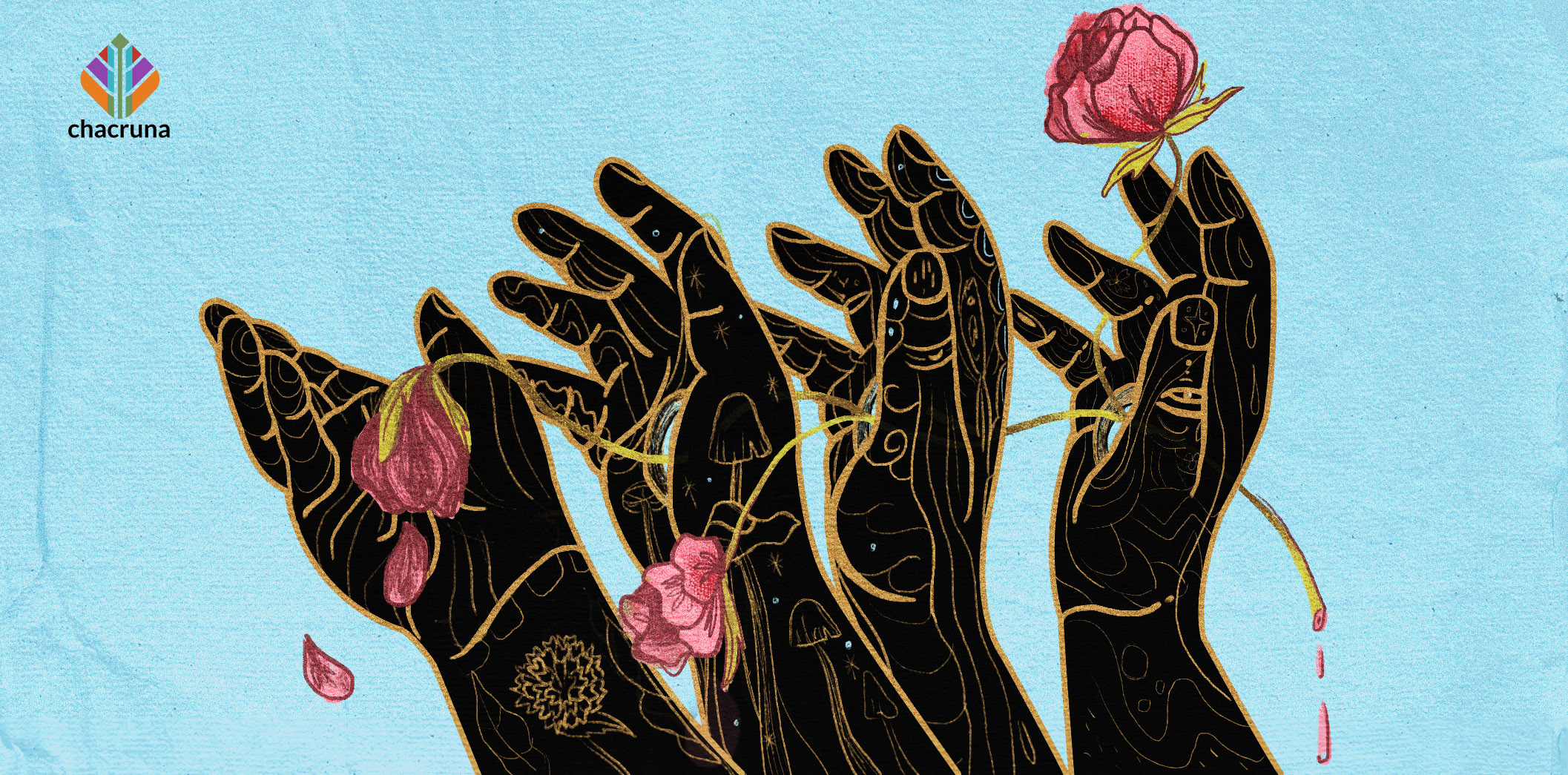- The Emergent Field of Psychedelic Chaplaincy - April 19, 2022
- Preparing Ourselves for the Psychedelic Future with Berra Yazar-Klosinski - November 3, 2021
- Stewarding Psychedelic and Ecological Biospheric Wisdom with Deborah Parrish Snyder - October 13, 2021

Within the psychedelic research community, there is a growing body of research showing how psychedelics can ease the process of coming to grips with death. However, extending themselves beyond the confines of science, psychedelics have been used to support people through the process of dying for a long time. Working behind the scenes, is a niche but growing community of psychedelic death midwives or end-of-life doulas who have trained to help individuals transition with grace.
In many ways, contemporary Western culture is death phobic, and to even broach the topic is considered unlucky or taboo, as though talking about death could somehow invoke it. However, no matter how much we try to steer clear of the dialogue, death is one thing that binds us all. As surely as we were born, the fact that we will one day die presents itself as an inevitability for us all. Even so, the majority of us prefer to distract ourselves from the simple fact, pushing it to the far reaches of our consciousness.
“Death is one thing that binds us all.”
So what exactly is it about death that causes us to avoid it so fervently? Perhaps, one of our biggest fears around death is the fear of the unknown. Even in today’s world where science strives to illuminate mystery, we cannot measure, quantify, or make firm conclusions about death.
Instead of being perceived as something natural, modern medicine is expert at keeping us alive; death is now considered as the ultimate failure in medicine. But what if we could shift the dialogue around death, and begin to speak about it more openly and honestly? That is where death midwifery and end-of-life doulas come in.

The Underground World of Psychedelic Death Doulas
A psychedelic death doula or death midwife is something you’re not likely to have heard of as they largely operate underground. Death doulas work with individuals during their dying process and sometimes even in the moment of transition itself. However, an individual needn’t be dying to enlist the support of an end-of-life doula, as a healthy person may also want their support. A death midwife takes care of the logistics and legalities of death, designing funeral services fitting for the individual as well as providing practical and spiritual support for conscious dying, sometimes with the use of psychedelics.
However, one need not work strictly with psychedelics to be an end-of-life doula in the first place. Mangda Sengvanhpheng, practicing death doula and founder of BACII, a platform devoted to reshaping the conversation around death, shared about her experience of what it means to be engaged in this work more generally.
“Being a death doula means providing non-medical, compassionate support and education to those who are facing death, the dying process or otherwise preparing for the end-of-life.”
Mangda Sengvanhpheng
“Being a death doula means providing non-medical, compassionate support and education to those who are facing death, the dying process or otherwise preparing for the end-of-life,” she shares. “Each doula can provide and incorporate their own specific skill sets or areas of expertise. This can include sitting vigil, emotional and/or spiritual care, grief support, preparing or wrapping up affairs, legacy work, end-of-life planning, and so much more.”
Whether involving psychedelics or not, death-midwifery has to do with reimagining the ways that we live and die. “By bringing awareness and understanding to difficult topics such as loss, grief, and death, we can change the ways we care for ourselves, each other and how we experience life,” shares Sengvanhpheng.
Discover the Indigenous Reciprocity Initiative of the Americas
Psychedelics, Death, and Ego-Dissolution
Psychedelics have long been associated with death and dying, albeit not necessarily the physical kind. Psychedelics induce a mystical-type state which is commonly known as ego death, or ego-dissolution in the scientific literature. In an experience of ego-dissolution, our ordinary, biographical sense of self melts away and dissipates into a larger “cosmic” consciousness.
The experience of ego death can be both blissful and ecstatic, whilst in the same stroke producing feelings of fear and terror. Perhaps paralleling actual death, in this state we may come to the realization that we are much more than our bodies and life experience. Rather, the boundaries of the narrative-self break down into something much greater. This process can be utterly terrifying; however, if we surrender to the unfoldment of it, it can be a healing and transformative experience.

Perhaps, it is psychedelics’ ability to induce experiences of ego death that make them so beneficial for those with terminal diagnoses, allowing them to confront death prematurely in some way. In fact, a 2016 randomized double blind trial by researchers at Johns Hopkins University, linked psilocybin’s ability to decrease depression and anxiety in cancer patients with life-threatening diagnoses to the mystical-type experiences by higher doses of the substance. Reflecting on the experience, one study participant shared, “I have the sense that death is not the end but part of a process, a way of moving into a different sphere, a different way of being.”
“Letting go and accepting ego death within the psychedelic state can help heal some of the fear and anxiety about death itself.”
When confronted with death, it is natural that our ego reacts with fear, attempting to cling to the subjective self-identity that we have long nurtured and known. However, letting go and accepting ego death within the psychedelic state can help heal some of the fear and anxiety about death itself in that we are graced with the realization that there is something greater beyond; that it is not necessarily an end.
Recognizing the transformative potential of the ego death experience early on, Timothy Leary, Ralph Metzner, and Richard Alpert, later known as Ram Dass, famously co-authored The Psychedelic Experience as a user manual created with the purpose of using psychedelics to navigate the cycle of death, the bardo, and rebirth set out by the Bardo Thödol, or Tibetan Book of the Dead. In Tibetan Buddhism the bardos are the states of existence that permeate the realm between death and rebirth. Subsequently, the Tibetan Book of the Dead places the utmost importance to the state of consciousness at the time of death, making efforts to guide and support the dying person to attain a higher state of awareness.

Recordings are now available to watch here
Laura Huxley, The First Known Psychedelic Death Midwife
Partially inspired by Leary, Alpert, and Metzner’s yet-to-be published manuscript, and having his own longstanding interest in the Bardo, English writer and philosopher, Aldous Huxley, decided to transition with 200 micrograms of LSD pumping through his blood.
Diagnosed with laryngeal cancer in 1960, Huxley’s health deteriorated slowly up until the time he died in 1963. Leading up to the time of his death, he had not taken a psychedelic for over two years, and thought about it often in his last weeks, telling himself that he would explore them once again when he felt better, and according to his wife, Laura Huxley, he was adamant in his belief that he would get better.
However, in his last hours as his condition worsened, he consciously decided that he wanted to ingest LSD. Laura, his wife administered two intravenous doses of 100 micrograms to him. Laura wrote an account of Aldous’ death, primarily for friends and family, however, she later published it in her memoir of her husband. She wrote, “Aldous died as he lived, doing his best to develop fully in himself one of the essentials he recommended to others: Awareness.” Aldous felt that his departure from his body might lessen his awareness and so he prescribed what he referred to as his own “sacrament.”

Acting as a death midwife for her husband, Laura perpetually reminded him not to become caught up in visions, which in Tibetan Buddhism are considered to be illusory, as he died, continually guiding him to move towards the pure light. Whispering to him gently, she said, “Willingly and consciously you are going, willingly and consciously, and you are doing this beautifully; you are doing this so beautifully—you are going towards the light—you are going towards the light—you are going towards greater love—you are going forward and up.”
It is speculated that Aldous Huxley’s decision to use LSD as he was dying was also linked to the work of the little-known clinician, Dr. Eric Kast. Kast was actually one of the first researchers to describe the impact of LSD on death and its possible benefits in terminal patients. As early as 1964, Kast published research pointing to LSD as a painkiller, providing support for its analgesic effects. With this realization, Kast experimentally tested LSD on over 300 terminal cancer patients, finding LSD to not only decrease physical pain but simultaneously reduce existential anxiety and distress related to end-of-life diagnoses. Later in 1970, Kast authored an article exploring LSD as a treatment for fear around death.
The Call for a More Compassionate Way to Die
Despite countless studies that suggest psychedelics, in particular psilocybin, are able to help individuals make peace with death and dying, they are still not legally available to access for this purpose. Recognizing this injustice, there has been an ongoing lawsuit in which terminally ill patients are suing the Drug Enforcement Agency (DEA) for its denial of their application to use psilocybin in end-of-life care.
The ongoing lawsuit, is an extension of Seattle-based palliative care doctor, Dr. Sunil Aggarwal’s work. Earlier this year Aggarwal took the DEA to court over its denial of an application for terminally ill patients to legally use psilocybin. The fight for expanded access was based on the premise of existing state and federal right-to-try laws which allow patients with life-threatening conditions the ability to try experimental treatments that have yet to be approved by the FDA for general use.
In 2018, President Donald Trump signed a federal Right to Try Act, allowing terminally ill patients across the US to try medicines that have yet to be approved. The DEA’s rejection of Aggarwal’s application asserted that his petition did not possess the authority to waive the federal Controlled Substances Act, in spite of the Right to Try Act.
Compared with the US, the use of psilocybin as palliative care for terminally ill patients has been permitted on a case by case basis in Canada. In August 2020, TheraPsil, a Canadian non-profit that facilitates access to legal psilocybin-assisted psychotherapy for individuals suffering from end-of-life distress, set a precedent when four Canadians with terminal cancer were granted legal exemptions to use psilocybin with the guidance of a therapist approved by Canada’s Ministry of Health. As of March 2021, Health Canada has approved exemptions for over 50 patients for legal psilocybin-assisted psychotherapy.

Please donate to the Psychedelic Renaissance Documentary
Given that a single dose of psilocybin has been shown to yield such dramatically promising results for battling with the transition to the other side, it seems altogether unethical to deny terminally ill individuals this kind of relief. Perhaps an extension of the cognitive liberty movement, the idea that humans should have sovereignty over their consciousness, ought to apply to death equally. Everyone has the right to choose how they transition from this world, and for that reason talking about new approaches to death and dying is of increasing importance.
“Everyone has the right to choose how they transition from this world, and for that reason talking about new approaches to death and dying is of increasing importance.”
Undoubtedly, a radical shift is in the way we understand and deal with death and dying is critically needed. Pondering the same question whilst providing her account of Aldous Huxley’s death, Laura Huxley wrote, “Now, is his way of dying to remain for us, and only for us, a relief and consolation, or should others also benefit from it? Aren’t we all nobly born and entitled to nobly dying?” Death is as individual as the person who lived, and under the influence of a psychedelic or not, having the loving support and gentle guidance of a death doula to aid the process of transition could help many more leave from this world nobly, with the dignity and compassion they deserve.
Take a minute to browse our stock:
Did you enjoy reading this article?
Please support Chacruna's work by donating to us. We are an independent organization and we offer free education and advocacy for psychedelic plant medicines. We are a team of dedicated volunteers!
Can you help Chacruna advance cultural understanding around these substances?















